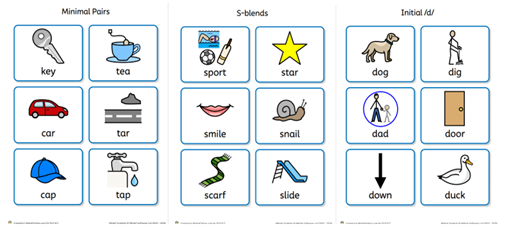The Cost of Caring
“We must treat ourselves with care, respect and compassion before we can effectively extend these things to others.” Kristi Bowman
Compassion fatigue is typically associated with caregivers, who work with individuals experiencing trauma or distress. It’s a term that describes the emotional and physical exhaustion that caregivers, professionals, and family members can experience when they are repeatedly exposed to the trauma and suffering, and constant demands to deal with the complex needs of others. It is often characterised by a diminished capacity to empathise or have emotional connections with others due to the overwhelming stress, and exposure to others suffering. It can take a huge toll on the caregiver and impact on the individuals they care for if they don’t have sufficient support.
Most of us will have our own experiences of being a caregiver in some form within our own lives, whether it be with our own children, disabled or sick relatives, elderly parents, or in our professional roles. Any of us in a caring role whether it is paid or unpaid can experience compassion fatigue. Caring for others is often a long-term commitment, and the burden of caregiving can be very stressful, isolating, emotionally and physically tiring.
Foster carers, parents and families, and those working in helping professions such as healthcare, education, social care, public services or humanitarian workers etc can all experience compassion fatigue.
Understanding compassion fatigue and learning how to recognise it and protect ourselves is essential for maintaining mental and physical well-being and ensuring that caregivers and professionals can continue to provide effective support to others without compromising their own health.
Causes and Signs of Compassion Fatigue
It's crucial for individuals in caregiving and professional roles to recognise the signs of compassion fatigue in themselves and in others. Early common indicators include:
- Emotional Exhaustion: Working or living in high-stress settings with individuals who have experienced trauma or hardship can be emotionally taxing. Caregivers may feel overwhelmed and drained. They may feel a sense of inadequacy or failure, feel stuck, helpless and hopeless, and unable to connect emotionally with the people they support.
- Exposure to Trauma: Regularly witnessing or hearing about traumatic events can lead to secondary or vicarious trauma, making us become desensitised or leading to emotional burnout.
- Reduced Empathy: A diminished ability to empathise can lead to feelings of detachment or numbness. Caregivers and professionals who do not have adequate support systems in place may feel isolated in their experiences. It can make them withdraw from friends, family and colleagues.
- Cynicism: Caregivers and professionals emersed in high-stress environments, might develop decreased job satisfaction, a negative outlook towards their work or the individuals they support. They may become more reactive, frustrated or less tolerant.
- Personal Experiences: Caregivers and professionals who have experienced trauma or loss in their own lives may be more susceptible to compassion fatigue.
- Physical Symptoms: Fatigue, insomnia, headaches, increased irritability, mood swings, anxiety, difficulty concentrating or making decisions and other physical ailments can arise because of secondary trauma and chronic stress.
Strategies for Coping with Compassion Fatigue
Addressing compassion fatigue involves both self-care and seeking support. Here are some strategies to consider:
- Self-care and setting boundaries: Prioritise your own mental and physical health. Take part in self-care activities that promote relaxation and well-being, such as exercise, meditation, or hobbies. Learn to set emotional and physical boundaries to protect your well-being. This may involve saying no to additional responsibilities or taking breaks when needed, seeking respite, or explore a change of role etc. Set limits on how much emotional energy you can give to others.
- Seek Support: Speak with managers, colleagues, family, friends, or support groups to share experiences and feelings. Talking about your challenges can be incredibly therapeutic and helpful to find ways to navigate through struggles. Consider seeking professional help through supervision, GP, counselling or therapy to address deeper emotional issues and develop coping strategies.
- Mindfulness and time for yourself: Engage in mindfulness or stress-reducing activities to help manage stress effectively. Spend time on activities that bring you joy and relaxation, helping to shift your focus away from stressors. Regularly step away from your caregiving duties to recharge. Use respite opportunities, have coffee with friends, take short breaks and holidays to help maintain your energy levels. Try to find ways to reduce your mental and physical load.
- Reflect on Your Motivation: Remind yourself of the reasons why you do your profession or caregiving role, it can help to reignite your commitment, passion and motivation. Focus on the small successes, things that are satisfying, pleasurable or that are worthwhile.
Summary
Compassion fatigue is a significant issue that can affect anyone in a caregiving role. It’s essential to be kind and compassionate to ourselves; caring for others can be hard work and should not be at the cost or detriment to our own health and wellbeing. Individuals can protect their emotional and physical well-being and continue to provide support to those in need by recognising the signs of compassion fatigue in themselves and in others, seek timely support, and implement coping strategies. We should understand the importance of self-care and explore ways to rest, recharge, restore and revitalise ourselves. We often feel guilty for doing things for ourselves or attending to our own needs first, however it is important to remember the adage that you can’t pour from an empty cup. Self-care should be just as important as the care you give to others.
"Self-care is giving the world the best of you instead of what's left of you." (Katie Reed)
Disclaimer: The views and opinions expressed in blog posts are solely those of the individual author and do not necessarily represent those of Plymouth Learning Partnership CIC. The content is provided for general information and educational purposes only and should not be relied upon as professional or legal advice. Plymouth Learning Partnership CIC accepts no responsibility or liability for any errors, omissions, or actions taken in reliance on this content. The individual author is responsible for ensuring that any third-party material used (including text, images, and media) does not infringe copyright. Plymouth Learning Partnership CIC does not accept liability for any unauthorised use of copyrighted material by the individual author.








